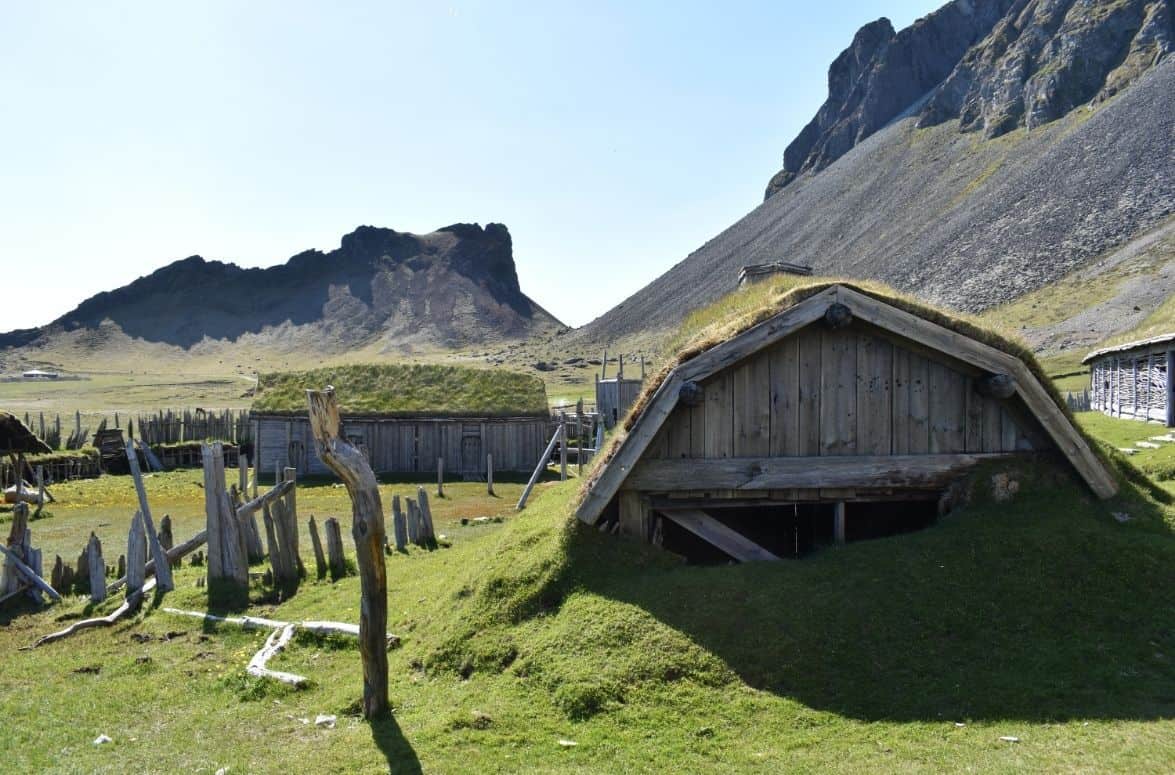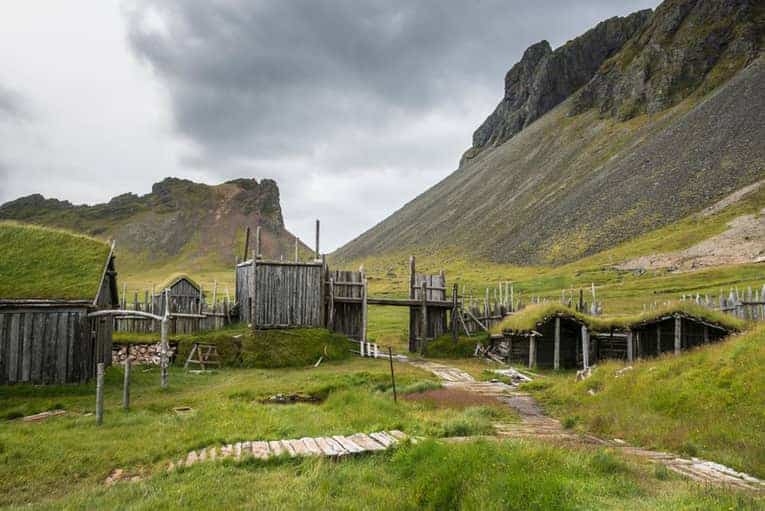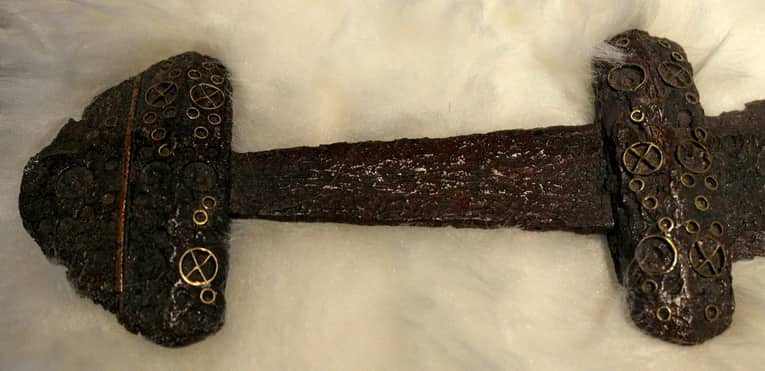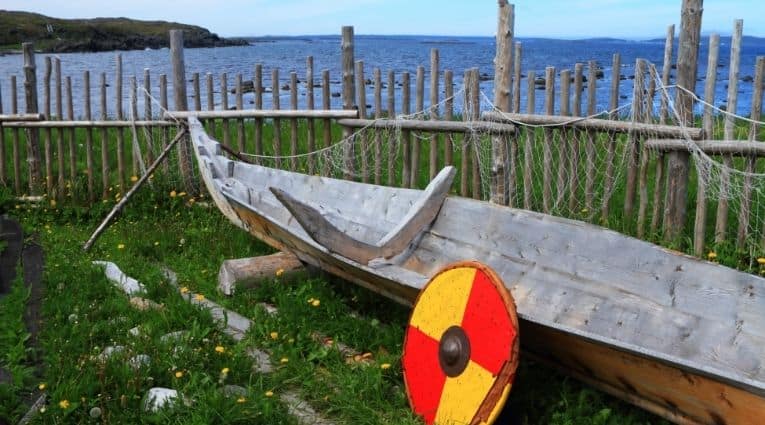The Vikings are a storied people, steeped in history and mythology. Most people know that Vikings were profoundly talented sailors and raided many Western European and North American settlements in the Middle Ages, but why did they do so?
What prompted them to explore beyond those bounds, having already founded a land of their own in Scandinavia?
Scholars debate the answer but propose theories that the Vikings were driven to leave Scandinavia due to:
- Overpopulation
- Lack of farmland
- Forced conversions to Christianity
- Political strife
- Degradation of trade routes
- Them seeing wealthy yet weak kingdoms overseas.
- Lack of marriageable women
- Youth bulge
Archaeological findings and primary accounts from The Viking Age, 793-1066 AD, shape current thinking about Viking motivations for leaving Scandinavia.
The Icelandic Sagas, Old Norse literature, also informs modern analyses of their behavior and what exactly drove them to colonize other lands heavily. This article explores the possibilities.
The Vikings are one of the most fascinating people groups in history. See Who Were the Vikings? to learn more.
Were the Vikings overpopulated?

Academics have speculated for years on why the Vikings left Scandinavia to become the well-known raiders everyone is familiar with.
Some popular ideas include a lack of marriage women, increased competition for dwindling resources, and political strife.
Currently, historians believe that a combination of in-fighting in Western Europe as well as Viking needs contributed to the age of expansion.
Although no hard evidence of an increase in population has been discovered yet, some historians postulate that Vikings left Scandinavia to escape overpopulation.
Having too many people trying to compete for the same number of resources was often the explanation for forced migration and raiding throughout history.
Overpopulation would also lend credence to the idea that the Vikings sought better farmland in Western Europe.
They made settlements in places like modern-day York and Dublin, looking for less populous areas where they would be able to have enough resources without the need for intense competition.
This would have been an ideal solution to the lack of resources at home.
The Vikings have an incredible story. See A History of the Vikings: A Simple Guide to learn more.
Did Vikings lack farmland?

Many of the earliest recorded Viking raids targeted English monasteries.
Some historians argue that it was revenge against the invasion of Christianity into Scandinavia that motivated these attacks, but others contend that their lush farmlands were the actual targets.
Many parts of Scandinavia are too cold for productive farming, and the Vikings may have been subject to a fish shortage, their main food staple.
However, while Western Scandinavia only relied on a small amount of farmland and fish to feed its population, the majority of Scandinavia had better access to farmland, and there is no archaeological evidence to suggest that there was a widespread crop or farm animal disease at the time which could have caused such a famine.
In addition, many scholars are puzzled by the choice to sail so far away from Scandinavia for raiding instead of merely clearing some of the enormous expanses of forest in Southern Scandinavia.
Proponents of this theory claim that it would have been less useful to clear farmland with such a small window for growing.
Revenge Against Christianity

During The Viking Age, Charlemagne and other like-minded people were intent on converting Saxon pagans to Christianity.
Anyone who refused baptism would be summarily executed, hoping that more Saxons would voluntarily convert out of fear by making an example of the heathens.
This persecution likely led to resentment and a desire for revenge.
Christianity had recently come into Norway at this time and caused conflict for almost 100 years among its residents.
Despite this evidence, historians know that initially, Vikings were only interested in British monasteries and not anywhere overseen by Charlemagne himself.
The monasteries may have been more attractive raiding grounds for their lack of defense.
The Vikings were remarkable seafarers, but how far did they travel? See Vikings in America: The Facts to learn more.
Political strife
The king of Norway united the country around this time and, in doing so, expelled many people from their homelands.
These displaced people may have become some of the raiders and emigrant Vikings that have become part of Western folklore.
Desperation from being driven from their homes is a reasonable explanation for turning to pillaging and sacking.
Their emigration may have also been to form small bases or forts from which to send attacks against their former king, Harald I.
These attacks may have been a revenge tactic or a possible way to attempt to reclaim their former homes.
No evidence has been found to show that the raiding Vikings ever returned to their homes in Norway after expulsion.
Degrading trade routes
When the Roman Empire lost much of its territory 300 years prior, the trade routes between Europe and Asia may have suffered as a result.
Additionally, the rise of Islam, beginning in the 600s, might have changed some of the trade routes and given preference to the Silk Road and other land routes instead of sea routes.
One profitable result of the Viking expansion was to set up new trade routes in Arab lands and dominate the trade routes once controlled by the Frisians.
The Frisians had been conveniently demolished by the Franks not long before, leaving their properties and trade routes ripe for the taking.
Taking Advantage of Wealth and Weakness

England, Ireland, and Wales were a mess of warring nations during the Viking expansion.
The Vikings could count on their lands for easy pickings since they were too busy fighting each other to protect against raids adequately.
Religious sites like monasteries were often located away from main towns and didn’t have the human resources to stand up to the Viking raiders.
However, the Vikings didn’t just raid their villages. They also founded new towns and emigrated to those towns.
Again, this was possible because of the decentralization of Britain at the time.
Feudal lords and barons squabbling over territories meant that their armies could be defeated or repelled by the Vikings without much effort, and they didn’t need to worry about a country’s military.
Lack of Marriageable Women
Powerful Viking men traditionally participated in polygamous relationships.
Because so many women would have been concubines of a few men, this would have increased the competition among men to find appropriate wives and inevitably led to a shortage of eligible women in their localities.
Vikings may have traveled to find more women to marry.
It may also have been seen as a sign of wealth or power to show off exotic women as their concubines because it would demonstrate that the Viking had participated in a successful raid of a foreign city.
Contemporary accounts note that Vikings often bought or kidnapped women from the towns they raided.
Youth Bulge
Viking custom dictated that the eldest son would inherit all of his father’s land and wealth. For any younger sons, that left nothing for them to inherit.
They would be forced to seek their fortune elsewhere because their forefathers had already claimed all of the lands in their area.
They would have to emigrate to claim their land.
Alternatively, if those younger sons wished to remain in their towns or villages, they would need another income source.
That may have led to the frequent raiding that Vikings have become so renowned for.
Those raids would have provided access to wealth, marriageable women, and prestige when they were successful.
However, no evidence of a significant population increase or youth bulge has been demonstrated as of yet in the archaeological record.
There may have been other factors that lead to younger sons becoming raiders or emigrants, but those factors have not yet been discovered either.
Conclusion
Scholars have proposed many theories based on contemporary accounts, but none have overwhelming supportive evidence. It is unknown exactly why the Vikings left Scandinavia.
References:
[1] https://denmark.net/denmark-vikings/
[2] https://en.wikipedia.org/wiki/Viking_Age
[3] https://en.wikipedia.org/wiki/Viking_expansion
